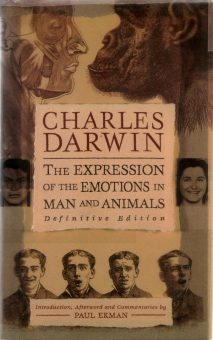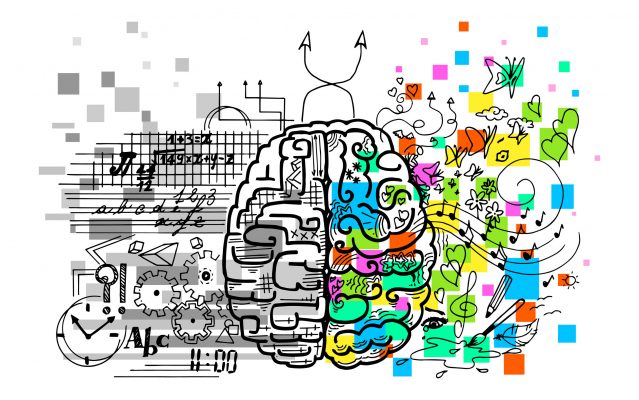Isn’t it time for a trifle more nuance in distinguishing between the sort of logical, rational intelligence (that we’re all looking forward to having artificially enhanced) and the higher-order consciousness informed by emotions that makes, and keeps us, human?
Emotions are primary. Emotions form the basis of consciousness. Even when we don’t realize or notice them (i.e. most of the time) they direct our lives from the background. The brain regulates behavior through the emotions. As emotions affect the physical body, so too does the physical body, the muscles, the hormonal system influence our emotions.
Emotions are necessary for decision making. They inform what economist Herb Simon called “revealed preference,” and Dan Gilbert wittily calls “miswanting.” They contribute to your imagination about your future self (prospection)—the emotions it may experience, and thus about decisions and actions ones’ future self might take when these emotions occur. How we “feel” informs our decision making. I will advocate that the “power of emotions” produce insight; vastly superior to the ordinary power of thought which produces opinions.
Emotions are not merely the fuel that powers the psychological mechanism of a reasoning animal, they are highly complex (and messy) inputs to that animal’s reasoning itself. Paraphrasing Martha Nussbaum, since they frequently involve acknowledgement of fear or neediness or lack of independence, then emotions reveal us as vulnerable to events that we do not control (seasoned, successful Entrepreneur Owner-Managers “get” this, right?). Because emotions involve judgments about important stuff, judgments in which looking at an external object as relevant for our well being, we acknowledge our own neediness and incompleteness in this world we live in that we do not control. Whoa, scary.
And emotions require enormous energy to initiate and maintain, don’t they? When we feel and act passionately, attempt to speak persuasively, are motivated by love or are inspired to anger, we get just as tired (perhaps more) than doing physical work. It’s much less depleting to hang back, play it safe and small, conform with the popular crowd, let someone else do that messy, wet work. So a persistent challenge for us as leaders is to use our finite energy to strive for our positive potential without squandering any energy on negative emotions.

For all of world history until now, high intelligence went together with high consciousness. Now however, non-conscious intelligence can without a doubt, out analyze, out pattern recognize, out calculate human intelligence. Non-conscious but highly intelligent AI algorithms search, collate, and calculate much better than humans can.
There is a persistent misunderstanding about the relationship of reason and emotion on human behavior, isn’t there? There is a common narrative fallacy—perhaps it’s an artifact of the Victorian era—that you are either emotionally motivated, or rationally motivated (emotion-free). How many times have you heard people counsel disapprovingly “don’t be so emotional?” How many other times have you seen friends try to employ a rational decision making tool—say, even just simple plus/minus “T account;” only to find their “rational” arrived-at answer is unsatisfying—and then choosing the more emotionally fulfilling choice? Reason vs. emotion is a false dichotomy. They are utterly intertwined at the neurobiological level. You have a thought: emotion paints parts of your brain and it activates the secretion of stress hormones resulting in a physical reaction. We make our decisions on implicit emotional feelings which activate us long before our so-called rational cognitive selves play catch up.
What’s more valuable—intelligence or consciousness? Which of the two is more sustainably human—intelligence or consciousness?
It takes purposeful effort to dig into the value of emotions. There is a necessity for self awareness to experience emotions—consciousness. Without awareness of self, we experience no joy, fear, anger. If something is not affecting you, then it is not producing an emotion. Which brings up interesting questions of principal-agent theory. When it is you, your spouse, your child who suffers (you are a principal), it affects you emotionally. When it is someone you don’t know, you may not be affected because you feel no emotion. No skin in the game. Therein lies the interesting talent of empathy where you can put yourself in their place, feel their pain. In effect, empathy can make you a temporary principal.
Obviously, the human brain is now an utterly obsolete mechanism for logical calculation. If, as a human, we historically thought of our principal asset and value as our intelligence/ability to calculate, then we have become a completely unsaleable (read: value-less) commodity in a future where automated logic and calculation is quite obviously more effectively done by computer. In ancient times, having power meant having access to data. Today, having power means knowing what to ignore. So, what should we focus on, what should we ignore?
I understand why we are interested in STEM education. We should be. But in truth, only a tiny percentage of people in our post industrial world will ever work in technology. Most of the important jobs of the future will require greater emotional intelligence, not more advanced algebra. Already, most of us have work requiring really high-order emotional skills whether we work with challenging customers, or just collaborate on a project team.
Isn’t there value in both views? Why reject either? Why not embrace both—the value of emotion and the need for rational data, facts, and evidence? Do we need a broad STEM-like effort directed at emotions, intelligence, and achieving our uniquely human potential?
Let’s act. As Entrepreneur Owner-Managers and social sector organization leaders, we can choose to allocate our high-performing people resources to those positions who achieve the most emotionally demanding work—leaving our AI investments to be in those areas it is uniquely fitted for.
Of Note: References and Further Reading:
Chalmers, D (1996). The conscious mind. New York: Oxford University Press.
Damasio, A (1994). Descartes error: emotion, reason, and the human brain. New York, Putnam.
Damasio, A. (1999). The feeling of what happens: the body and emotion in the making of consciousness. New York: Harcourt.
Darwin, C. (1872). The expression of the emotions in man and animals. London: Fontana.
Diamandis, P. H., & Kotler, S. (2016). Bold: how to go big, achieve success, and impact the world. New York: Simon & Schuster Paperbacks.
Eagleman, David. 2012. Incognito: The Secret Lives of the Brain. New York: Vintage Books.
Edelman, Gerald. (1987). Neural Darwinism: The Theory of Neuronal Group Selection. New York: Basic Books
Ericsson, K. A. (2016). Peak: secrets from the new science of expertise. London: The Bodley Head.
Gazzaniga, M (2008). The science behind what makes us unique. New York: Ecco.
Kelly, K. (2016). The inevitable: understanding the 12 technological forces that will shape our future. New York, NY: Viking.
LeDoux, J. and Brown, R. (2017). Higher order theory of emotional consciousness. Proceedings of the National Academy of Science. E2016-E2025.
Lewis, M. (2017). The undoing project: a friendship that changed our minds. New York: W.W. Norton & Company.
McCloskey, D. N. (2016). Bourgeois equality: how ideas, not capital or institutions, enriched the world. Chicago: The University of Chicago Press.
McDougall, Christopher. (2016). Natural Born Heroes. New York: Vintage Books
Nussbaum, Martha (2001). Upheavals of thought: the intelligence of emotions. Cambridge: Cambridge University Press.
Russell, B. (2013). The conquest of happiness. New York: Liveright Publishing Corporation.
Seligman, M. E., Railton, P., Baumeister, R. F., & Sripada, C. (2016). Homo prospectus. Oxford: Oxford University Press.
Sullivan, D. (2016). The self-managing company: how to build a company that manages itself to growth. (A Strategic Coach EBook Series).
Taleb, N. N. (2014). Antifragile: things that gain from disorder. New York: Random House Trade Paperbacks.
Image credit: Carla Castagno, 123rf.com – https://www.123rf.com/profile_carlacastagno

